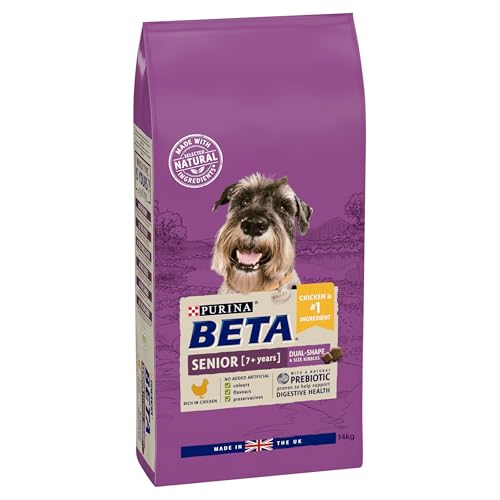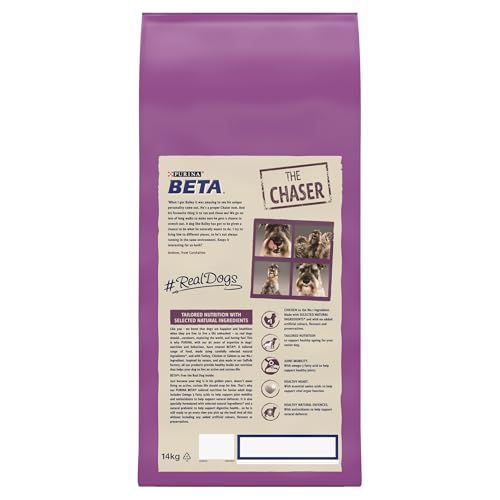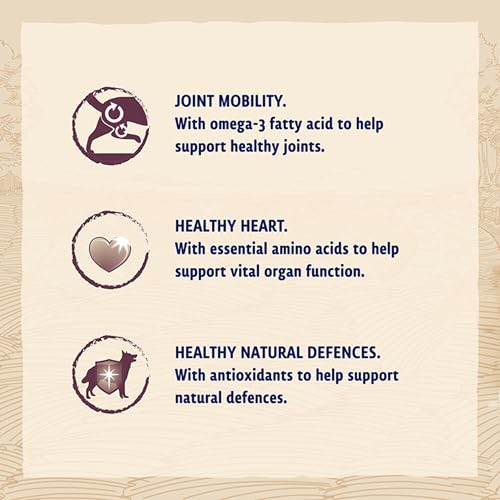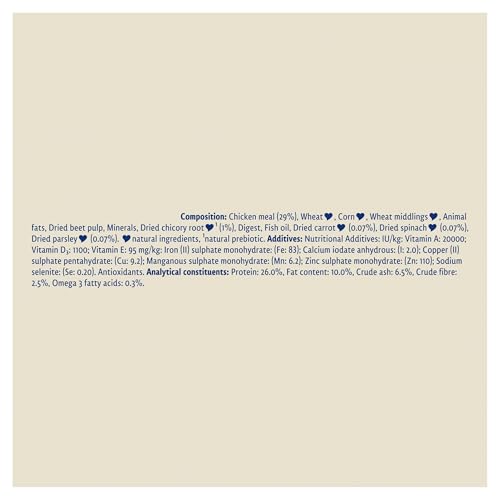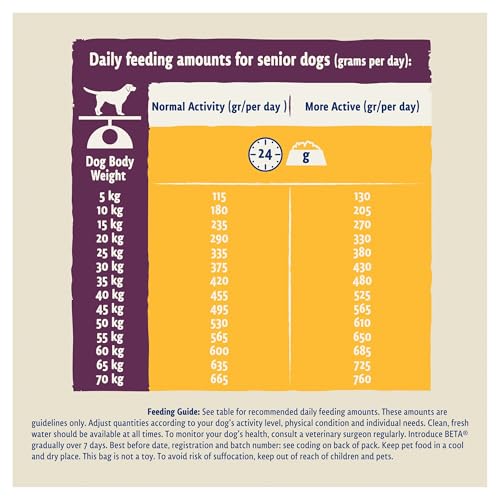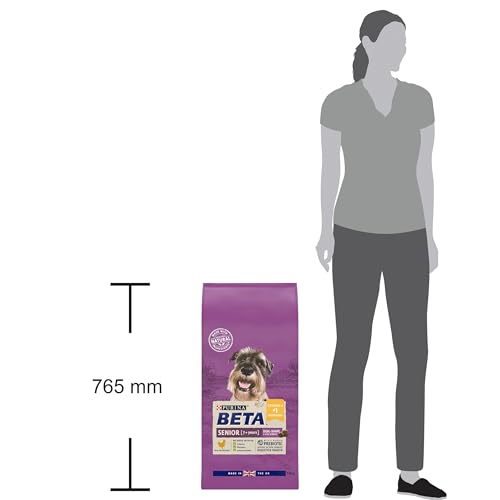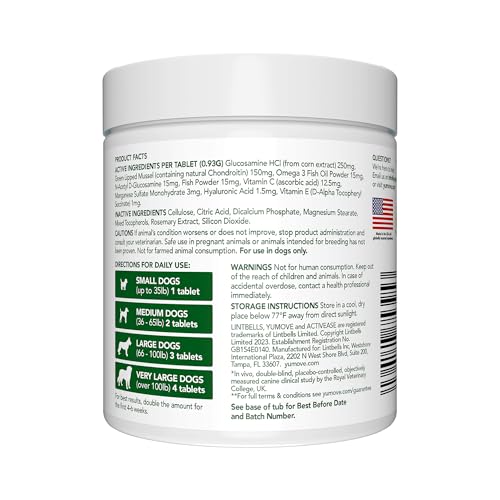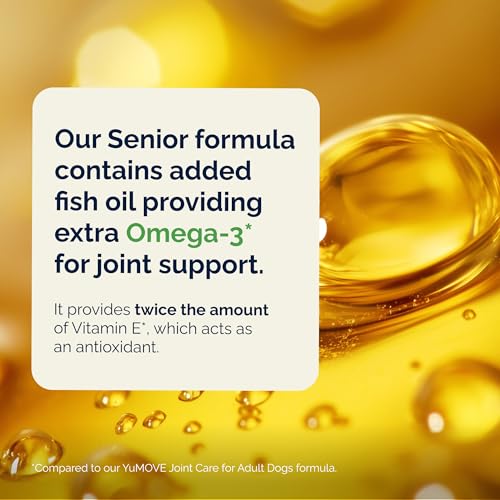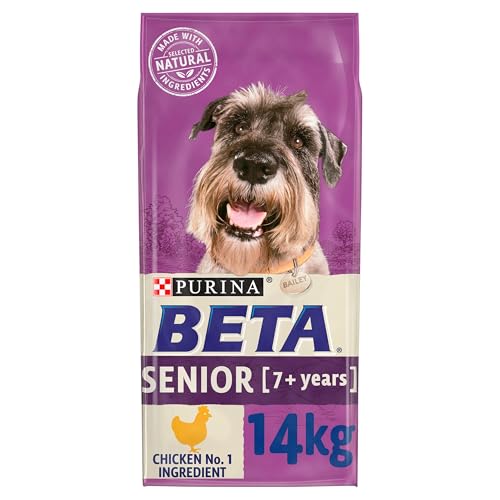

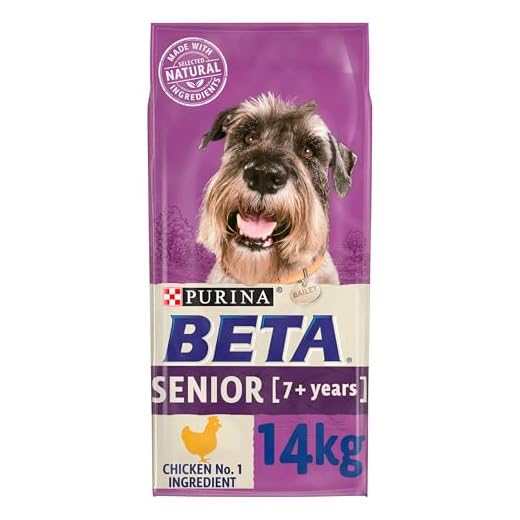


As a dedicated dog owner, ensuring my elderly Labrador receives the best nutrition is a top priority. The dietary needs of senior dogs can be quite specific, particularly for Labradors, who are prone to joint issues and weight gain as they age. Through extensive research and consultation with veterinarians, I’ve discovered some of the best dog foods available in the UK tailored to meet the unique needs of elderly Labs.
Choosing the right dog food for an elderly Labrador involves understanding their changing nutritional requirements. Older dogs often need fewer calories due to a decrease in activity levels, but they require a higher concentration of certain nutrients like omega-3 fatty acids for joint health and fibre for digestive support. It’s also crucial to consider food that is easy to chew and digest, given that dental health can deteriorate with age.
In this article, I’ll share the top-rated dog foods that have been specifically formulated for senior Labradors. These selections are based on ingredient quality, nutritional balance, and positive reviews from other pet owners and experts. By providing our senior furry friends with the best possible diet, we can help them maintain their health and vitality well into their golden years.
Optimal Nutrition for Senior Labrador Retrievers in the UK
As the proud owner of an ageing Labrador Retriever, I understand the importance of finding the right food to support their health and vitality in their senior years. Our beloved Labs, with their boundless energy and loving nature, deserve the best nutrition to help them stay active and happy as they grow older.
When selecting food for an elderly Lab, it’s crucial to consider their specific dietary needs. Senior dogs often require a diet lower in calories to prevent weight gain, higher in fibre to aid digestion, and rich in essential nutrients to support joint health and overall well-being. Here, I’ll share my insights and experiences on the most beneficial food options available for senior Labradors in the UK.
Nutritional Requirements for Older Labradors
One of the key considerations for feeding a senior Labrador is ensuring they receive the right balance of protein, fats, and carbohydrates. High-quality protein helps maintain muscle mass, which is particularly important as dogs age and naturally lose some muscle. Additionally, fats provide necessary energy, but it’s vital to choose foods with healthy fats to avoid excessive weight gain.
Essential Ingredients to Look For:
- Glucosamine and Chondroitin: These are crucial for joint health, helping to alleviate the symptoms of arthritis and joint stiffness.
- Omega-3 Fatty Acids: Found in fish oil, these support brain function, reduce inflammation, and promote a shiny coat.
- Fibre: Aids in digestion and helps maintain a healthy weight by providing a feeling of fullness without extra calories.
- Antioxidants: These boost the immune system and can help fight off age-related diseases.
In the UK, there are several brands that cater specifically to the needs of senior Labradors. These brands often offer tailored formulas that include all the necessary nutrients to keep your elderly Lab in top condition. Here are a few options that I have found particularly effective:
- James Wellbeloved Senior Dog Food: This brand offers a variety of flavours and uses natural ingredients, making it a great choice for sensitive stomachs.
- Royal Canin Labrador Retriever Adult 5+: Specially formulated for older Labs, this food includes nutrients that support heart and joint health.
- Harringtons Senior Complete: A budget-friendly option that doesn’t compromise on quality, packed with vitamins and minerals essential for senior dogs.
Each dog is unique, so it might take some experimentation to find the perfect food for your Labrador. Consult your vet for personalised advice, and consider any specific health issues your dog may have. With the right diet, your senior Lab can continue to enjoy a healthy, happy life well into their golden years.
Understanding the Nutritional Needs of Senior Labradors
As our beloved Labradors age, their dietary requirements evolve, necessitating adjustments to ensure they remain healthy and active. Understanding these changes is crucial for providing the best care possible. Older Labradors typically face different health challenges compared to their younger counterparts, such as joint issues, slower metabolism, and a higher susceptibility to certain illnesses.
Addressing these needs through a well-balanced diet tailored for senior dogs can significantly enhance their quality of life. It’s not just about feeding them less food but choosing the right nutrients that support their aging bodies. Let’s delve into the specific nutritional elements that are essential for elderly Labradors.
Key Nutritional Components for Senior Labradors
- Protein: Older Labradors still need substantial protein to maintain muscle mass and support overall body function. Opt for high-quality, easily digestible protein sources like chicken, turkey, or fish.
- Healthy Fats: Incorporating omega-3 and omega-6 fatty acids can help manage inflammation and support joint health. Fish oil is a great supplement for this purpose.
- Fibre: A diet rich in fibre aids in digestion and can prevent constipation, a common issue in senior dogs. Consider foods with added fibre from natural sources like vegetables and whole grains.
- Antioxidants: Vitamins C and E, along with other antioxidants, support immune function and can help combat the effects of aging. Blueberries, spinach, and sweet potatoes are excellent natural sources.
- Glucosamine and Chondroitin: These supplements are vital for maintaining joint health and mobility, addressing common issues like arthritis and hip dysplasia in older Labradors.
Adjusting the caloric intake is also crucial, as senior Labradors are generally less active and thus require fewer calories to prevent weight gain. However, it’s important to ensure that their diet remains nutrient-dense to avoid deficiencies.
Regular veterinary check-ups can help tailor these dietary recommendations to your dog’s specific needs, ensuring they receive the best possible care as they age gracefully. By focusing on these nutritional elements, we can help our elderly Labradors enjoy their golden years with vitality and health.
Recommended Dog Food Brands for Elderly Labradors in the UK
As my Labrador ages, I’ve become more conscious of his dietary needs. Senior dogs often require a different balance of nutrients to support their ageing bodies. This means it’s essential to choose a dog food brand that caters specifically to the needs of older dogs. Over the years, I’ve tried various brands and found some that stand out in providing the right nutrition for my elderly Lab.
Through research and personal experience, I’ve compiled a list of dog food brands that offer high-quality ingredients, balanced nutrition, and formulas designed to support joint health, digestion, and overall vitality in senior Labradors. Here are some of the brands I’ve found most effective.
Brands That Cater to Elderly Labradors
-
Royal Canin Ageing 8+
Trending NowEukanuba Dry Food for Adult Labradors 12 kgSupports muscle and joint healthFormulated specifically for Labrador Retrievers, this complete dry food helps maintain lean muscle mass and promotes healthy joints, thanks to added glucosamine and chondroitin.Royal Canin offers a formula specifically for dogs aged 8 years and above. This food contains adapted protein levels to help maintain muscle mass, and it’s enriched with EPA-DHA and a patented complex of antioxidants to support ageing.
-
Hill’s Science Plan Senior Vitality
Hill’s Science Plan is known for its scientific approach to pet nutrition. Their Senior Vitality range includes ingredients that promote brain function, energy levels, and a healthy coat. It’s a great option for keeping your senior Labrador active and engaged.
-
James Wellbeloved Senior
This brand offers a hypoallergenic formula that’s ideal for older dogs with sensitive stomachs. James Wellbeloved Senior dog food is rich in omega fatty acids, which support joint health and a glossy coat. It’s also free from artificial colours, flavours, and preservatives.
-
Arden Grange Senior
Arden Grange provides a senior dog food with a blend of easily digestible ingredients and joint supplements. It’s particularly good for elderly Labs that need extra support for their hips and joints.
-
Barking Heads Golden Years
Barking Heads is another brand that offers a senior-specific formula. Golden Years is crafted with chicken, trout, brown rice, and vegetables, ensuring a balanced diet. It’s designed to support mobility and overall health in older dogs.
Each of these brands has its unique strengths, and the best choice will depend on your Labrador’s specific health needs and preferences. Consulting with your vet can also help tailor the perfect diet for your ageing companion.
Essential Components in Senior Dog Food
When choosing the right food for my elderly Labrador, it’s crucial to understand the specific ingredients that support their changing nutritional needs. Senior dogs require a diet that addresses their unique health challenges, such as joint issues, reduced energy levels, and potential digestive problems.
To ensure my Lab stays healthy and active in his golden years, I focus on certain key ingredients that are vital for his well-being. These components not only help in maintaining his health but also enhance his quality of life.
Important Nutrients for Senior Dogs
As our dogs age, their nutritional requirements evolve. Here are the ingredients I always look for in senior dog food:
- High-Quality Protein: Protein is essential for maintaining muscle mass and strength. I opt for dog food with high-quality protein sources like chicken, turkey, or fish.
- Glucosamine and Chondroitin: These supplements are crucial for joint health. They help to reduce the symptoms of arthritis and improve mobility, which is particularly important for older Labs who are prone to joint issues.
- Omega-3 Fatty Acids: Ingredients like fish oil provide omega-3 fatty acids, which support heart health, reduce inflammation, and keep the coat shiny and healthy.
- Fibre: Adequate fibre is important for digestive health. Ingredients like sweet potatoes, brown rice, and pumpkin help ensure regular bowel movements and prevent constipation.
- Antioxidants: Vitamins C and E, along with other antioxidants, are vital for boosting the immune system. They help to combat the effects of ageing and keep my dog’s system functioning optimally.
- Moderate Fat Content: Senior dogs need balanced fat levels to prevent weight gain while providing enough energy. I look for foods with a controlled fat content, sourced from healthy fats like chicken fat or flaxseed.
By carefully selecting a diet rich in these essential nutrients, I can help my senior Labrador maintain his health and vitality. It’s important to consult with a vet to tailor the diet to my dog’s specific needs, but keeping these ingredients in mind is a solid foundation for any senior dog food.
How to Transition Your Labrador to Senior Dog Food
As our beloved Labradors age, their dietary needs change significantly. Ensuring a smooth transition to a diet that supports their ageing bodies is crucial for their overall health and well-being. I recently went through this process with my own elderly Labrador, and I’d like to share some insights that could help you make this change as seamless as possible.
The first step in transitioning your Labrador to senior dog food is recognising the signs that they need a change. Look for reduced energy levels, weight gain, or mobility issues, as these can indicate that their current diet is no longer meeting their needs. Consulting with your vet is essential to determine the right time to make the switch.
Steps to Transition Your Labrador’s Diet
- Gradual Introduction: Start by mixing a small amount of senior dog food with their current food. Gradually increase the proportion of the new food over a period of 7-10 days. This helps prevent digestive issues and allows your Labrador to adjust to the new taste and texture.
- Monitor Their Reaction: Keep a close eye on your dog during the transition. Watch for any signs of digestive upset, such as vomiting or diarrhoea. If any adverse reactions occur, slow down the transition process or consult your vet for advice.
- Adjust Portions Appropriately: Senior dog food is often formulated with fewer calories but more fibre and essential nutrients. Make sure you adjust the portion sizes according to the recommendations on the packaging or as advised by your vet to prevent overfeeding or underfeeding.
In addition to changing their food, consider other dietary supplements that might benefit your senior Labrador. Supplements like glucosamine and chondroitin can support joint health, while omega-3 fatty acids help maintain a healthy coat and skin. Always consult your vet before adding new supplements to ensure they are appropriate for your dog’s specific needs.
Transitioning to senior dog food is not just about changing what you feed your Labrador but also how you feed them. Ensure they have easy access to fresh water, and consider feeding them smaller, more frequent meals to aid digestion. By taking these steps, you can help your elderly Labrador enjoy their golden years with optimal health and vitality.
Common Health Issues in Elderly Labs and Dietary Solutions
As a proud owner of an elderly Labrador, I’ve come to understand the unique health challenges that come with their advanced age. Labradors, known for their friendly disposition and energetic nature, often face specific health issues as they grow older. Identifying these problems early and addressing them through proper nutrition is key to ensuring they live a comfortable and happy life.
One of the most common issues is joint pain and arthritis. With their larger size and active lifestyle, Labradors are prone to joint issues that can significantly affect their mobility and quality of life. Additionally, many older Labs struggle with weight management, as their metabolism slows down with age, leading to obesity if not properly managed.
Addressing Joint Pain and Arthritis
To help alleviate joint pain and arthritis, it’s essential to provide a diet rich in anti-inflammatory ingredients and supplements. Foods containing omega-3 fatty acids, such as fish oil, are excellent for reducing inflammation. Moreover, glucosamine and chondroitin are crucial for maintaining joint health and are often included in specialised senior dog foods.
Here’s what I look for in their diet:
- Omega-3 Fatty Acids: Found in fish oil, these help reduce inflammation and support joint health.
- Glucosamine and Chondroitin: These supplements are vital for cartilage repair and maintaining joint flexibility.
- Antioxidants: Ingredients like blueberries and spinach help combat oxidative stress, further aiding in reducing inflammation.
Managing Weight and Metabolism
Another significant concern is weight management. An older Lab’s slower metabolism requires fewer calories, but the temptation to overfeed them remains. Obesity can exacerbate joint problems and lead to other health issues like diabetes and heart disease.
To manage their weight effectively, I ensure their diet includes:
- High-Quality Protein: Essential for maintaining muscle mass without adding unnecessary calories.
- Low-Fat Content: Helps prevent weight gain while still providing essential nutrients.
- Fibre-Rich Ingredients: Ingredients like sweet potatoes and green beans aid digestion and help them feel fuller for longer.
By addressing these dietary needs, I can help my elderly Lab maintain a healthy weight and manage joint pain, allowing them to enjoy their golden years comfortably. It’s always best to consult with a veterinarian to tailor these dietary solutions to your specific pet’s needs.
Homemade vs. Commercial Dog Food: What’s Best for Older Labradors?
As my Labrador has aged, I’ve found myself increasingly concerned about his diet. Older dogs have specific nutritional needs, and it can be challenging to decide whether to feed them homemade meals or rely on commercial dog food. Each option has its own set of advantages and potential drawbacks, and the best choice often depends on the individual dog’s health and lifestyle.
When considering homemade food, one of the main benefits is the ability to control every ingredient that goes into my dog’s meal. This means I can ensure that he gets fresh, high-quality ingredients without any additives or preservatives. It also allows me to tailor the diet to his specific health needs, such as joint support or digestive health. However, preparing homemade food can be time-consuming and requires a good understanding of canine nutrition to avoid deficiencies.
Advantages of Homemade Dog Food
- Control Over Ingredients: I know exactly what my dog is eating and can avoid any allergens or fillers.
- Customisation: The diet can be tailored to address specific health issues like arthritis or obesity.
- Freshness: Meals are prepared fresh, which can be more appetising and nutritious for my dog.
Drawbacks of Homemade Dog Food
- Time-Consuming: Preparing balanced meals requires significant time and effort.
- Risk of Imbalance: Without proper knowledge, it’s easy to miss essential nutrients, leading to deficiencies.
- Cost: High-quality ingredients can be more expensive than commercial dog food.
On the other hand, commercial dog food offers convenience and is often formulated to meet the dietary needs of senior dogs. Many brands provide options specifically designed for older dogs, which include the right balance of proteins, fats, and carbohydrates, along with added supplements for joint health and digestion. While some commercial foods can contain preservatives and lower-quality ingredients, choosing a reputable brand can mitigate these concerns.
Benefits of Commercial Dog Food
- Convenience: Pre-packaged meals save time and effort, making feeding easier and more consistent.
- Nutritional Balance: Formulated to provide a balanced diet, ensuring that my dog gets all essential nutrients.
- Specialised Options: Availability of formulas tailored to the needs of senior dogs, often including added supplements.
Downsides of Commercial Dog Food
- Ingredient Quality: Some brands may use fillers or lower-quality ingredients, which can affect my dog’s health.
- Additives and Preservatives: The presence of artificial additives might not be ideal for sensitive dogs.
- Cost: High-quality commercial foods can be expensive, comparable to the cost of homemade meals.
Ultimately, the choice between homemade and commercial dog food should be based on my Labrador’s specific health needs, my ability to prepare balanced meals, and the quality of the commercial options available. Consulting with a veterinarian can provide valuable guidance to ensure my senior dog stays healthy and happy.
Understanding Dog Food Labels for Better Nutrition
When it comes to ensuring optimal nutrition for your elderly Lab, deciphering dog food labels becomes crucial. As a responsible pet owner, I’ve learned that a keen eye on these labels can make a significant difference in my dog’s health and well-being.
First and foremost, I pay close attention to the ingredient list. I look for real, whole foods like chicken, beef, or fish, listed as primary ingredients. These protein sources provide essential amino acids vital for muscle maintenance and overall health. Additionally, I avoid foods with vague labels like “meat by-products” or “animal derivatives,” as they offer little clarity on what my dog is actually consuming.
Next, I focus on the nutritional breakdown. Essential nutrients such as protein, fats, carbohydrates, vitamins, and minerals should be well-balanced to meet my elderly Lab’s specific needs. I opt for foods enriched with omega-3 fatty acids and glucosamine, which support joint health and mobility, common concerns for ageing dogs.
Furthermore, I scrutinize the guaranteed analysis section. This provides insights into the minimum percentages of crude protein and fat, as well as maximum percentages of crude fiber and moisture. It helps me ensure that the food aligns with my Lab’s dietary requirements, promoting digestion and nutrient absorption.
As I navigate the aisles of pet stores, armed with knowledge about reading dog food labels, I feel empowered to make informed choices for my beloved companion. By prioritizing quality ingredients and nutritional balance, I can provide my elderly Lab with the best possible diet tailored to his needs.
Tips for Keeping Your Senior Labrador Healthy and Active
As your Labrador enters its senior years, it’s crucial to adapt their care routine to ensure they remain healthy and active. Here are some tips to help you keep your senior Labrador in top shape:
- Regular Veterinary Check-ups: Schedule regular check-ups with your veterinarian to monitor your Labrador’s health and address any age-related issues promptly.
- Healthy Diet: Switch to a senior-specific dog food that caters to the nutritional needs of older dogs. Look for formulations rich in protein, low in fat, and containing joint-supporting supplements like glucosamine and chondroitin.
- Weight Management: Keep an eye on your Labrador’s weight to prevent obesity, which can exacerbate joint problems and other health issues. Adjust their diet and exercise routine as needed to maintain a healthy weight.
- Regular Exercise: Despite their age, senior Labradors still need regular exercise to stay fit and mentally stimulated. Tailor their exercise routine to their abilities, opting for low-impact activities like gentle walks and swimming.
- Joint Care: Help alleviate joint stiffness and pain by providing supportive bedding and incorporating joint supplements into their diet. Avoid activities that put excessive strain on their joints, such as high-impact exercises or jumping.
- Mental Stimulation: Keep your senior Labrador’s mind engaged with interactive toys, puzzle feeders, and training sessions. Mental stimulation is essential for preventing cognitive decline and boredom.
- Dental Care: Maintain your Labrador’s dental health by brushing their teeth regularly and providing dental chews or treats. Poor oral hygiene can lead to dental disease, which can impact their overall health.
- Quality Rest: Ensure your senior Labrador has a comfortable and quiet space to rest undisturbed. Older dogs may need more sleep and rest to recharge their bodies.
By following these tips and providing your senior Labrador with the love, care, and attention they deserve, you can help them enjoy their golden years to the fullest.
Best Dog Food For Elderly Lab Uk
Features
| Size | 15 kg (Pack of 1) |
Features
| Part Number | 12274093 |
| Model | TP-7613035152908_Vendor |
| Release Date | 2015-08-24T00:00:01Z |
| Size | 11 kg (Pack of 1) |
| Language | Spanish |
| Price history for PRO PLAN HA Veterinary Dog Food 11 kg | |
|---|---|
|
Latest updates:
|
|
Features
| Part Number | 12231689 |
| Model | 12531980 |
| Color | transparent |
| Release Date | 2014-05-23T00:00:01Z |
| Size | 1 count (Pack of 1) |
Features
| Part Number | 81378294 |
| Model | Labrador Dog Food 12KG |
| Color | red |
| Is Adult Product | |
| Release Date | 2011-02-22T00:00:01Z |
| Size | 12 kg (Pack of 1) |
| Language | Italian |
Features
| Part Number | 0000 |
| Model | 0000 |
| Warranty | 45 Day Money Back |
| Size | Single Pack |
| Price history for NutriPaw Probiotic Digestive Treats | |
|---|---|
|
Latest updates:
|
|
Features
| Is Adult Product | |
| Release Date | 2025-05-17T00:00:01Z |
| Language | English |
| Number Of Pages | 213 |
| Publication Date | 2025-05-17T00:00:01Z |
Features
| Part Number | 502000 |
| Model | 502000 |
| Release Date | 2019-12-23T00:00:01Z |
| Size | 14 kg (Pack of 1) |
Features
| Part Number | YMS120 |
| Model | YMS120 |
| Warranty | 2 year Manfacturer |
| Color | White |
| Size | 120 Tablets |
Q&A:
What is the best dog food for elderly Labradors in the UK?
The best dog food for elderly Labradors in the UK typically contains ingredients tailored to their nutritional needs, such as glucosamine for joint health and lower fat content to manage weight.
Should I look for specific ingredients when choosing dog food for my elderly Labrador in the UK?
Yes, look for ingredients like glucosamine and chondroitin for joint health, omega-3 fatty acids for coat and skin health, and a moderate protein content to support muscle maintenance without overloading the kidneys.
Are there any specific brands known for providing quality dog food for elderly Labradors in the UK?
Several brands offer specialized formulas for senior dogs, including Royal Canin, Hill’s Science Diet, and Lily’s Kitchen. It’s essential to choose a reputable brand with a focus on quality ingredients and nutritional balance.
























